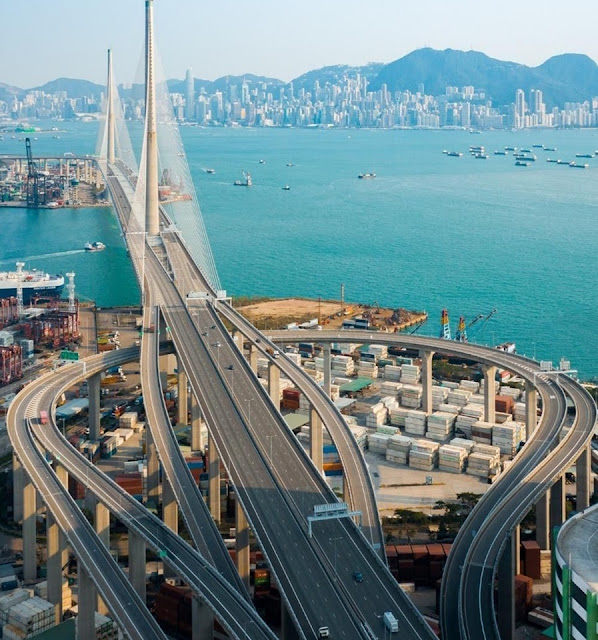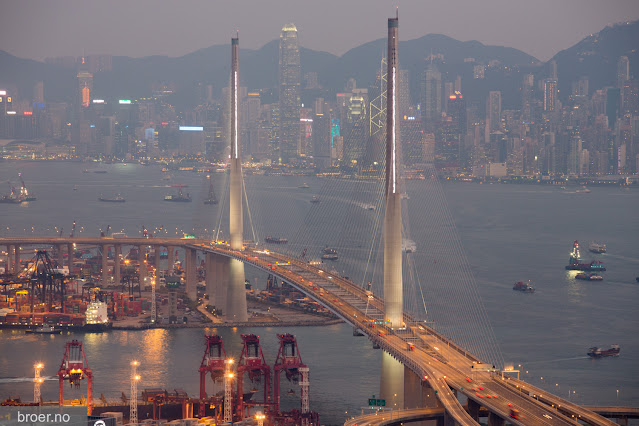It is a high-level bridge over the channel to a container port.
 |
Highway Engineering Discoveries posted Hong kong Highway Engineering Discoveries posted again with a different cropping Ring road industrial bridge |
A lot of crossings in Hong Kong are tunnels. But the rather unique ramps on one end of this bridge allowed me to find the bridge on a satellite map. The container crane in the left background of the above photo confirms the location.
More than one source says it is now the third longest cable-stayed bridge, but I could not find a date on any of those sources.
 |
| arup It was the second longest spanning cable-stayed bridge at the time of its completion It has a main span of 1,018m (3,034', 0.63 mile) and a total length of 1.6km (1 mile). Both 290m (951') tall towers are made with concrete and stainless steel. The deck consists of two 3-lane box girders tied together by cross girders so that the towers are in the middle. |
 |
| BridgeInfo It opened in 2009, and it has a clearance of 73m (240'). [Other sources say 73.5m.] |
 |
| roadtraffic-technology [This view shows that the cables are asymmetric with the back span being shorter than the main span.] The cable testing included fatigue and tensile strength tests. It also included "a first-of-its-kind cable corrosion protection system aging and watertightness test." "The two towers are in concrete until level +175m and in composite construction consisting of an inner concrete ring with a stainless steel skin for the top 120m. The original concept had a conventional steel structure above level +175m but Arup found that this configuration would be too lively and lead to unacceptable vibrations of the stay cables. Using a heavier composite section instead of a pure steel structure solved this problem." The decks for the main span is made with steel and the decks for the side spans are made with concrete. Fabricating such a large stainless steel structure for the upper tower cladding was prototyped. A 50m (164') tall mast was used from oct 2002 to Jan 2004 to measure wind speeds in the area. "In particular, the stability of the 509m-long cantilevers during construction required special consideration in the design." |
 |
| arup "Building a bridge with such a large span exposed to strong typhoon winds posed many challenges to the Arup design team including analysis of wind patterns at the site and mitigating against potential ship impact. © Marcel Lam Photography" |
This bridge was part of a major new route that included a tunnel just west of the bridge.
 |
| Falbe-Hansen pdf via ResearchGate |
This view shows the dual deck boxes that are connected with cross girders.
 |
| redupper "It is the third longest cable-stayed bridge in the world, second only to Sutong Yangtze River Bridge and Russky Island Bridge." |
No comments:
Post a Comment